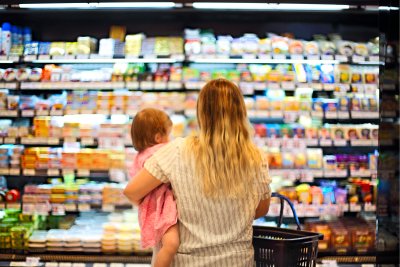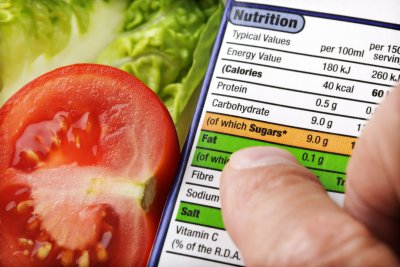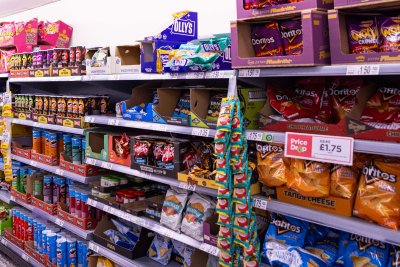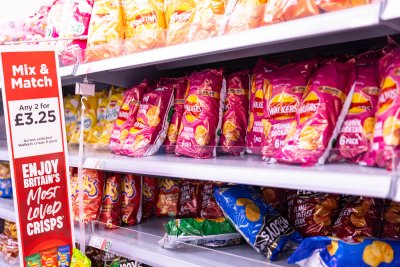 Multibuy promotion on crisps in a supermarket. Credit: David Madden | Sustain
Multibuy promotion on crisps in a supermarket. Credit: David Madden | Sustain
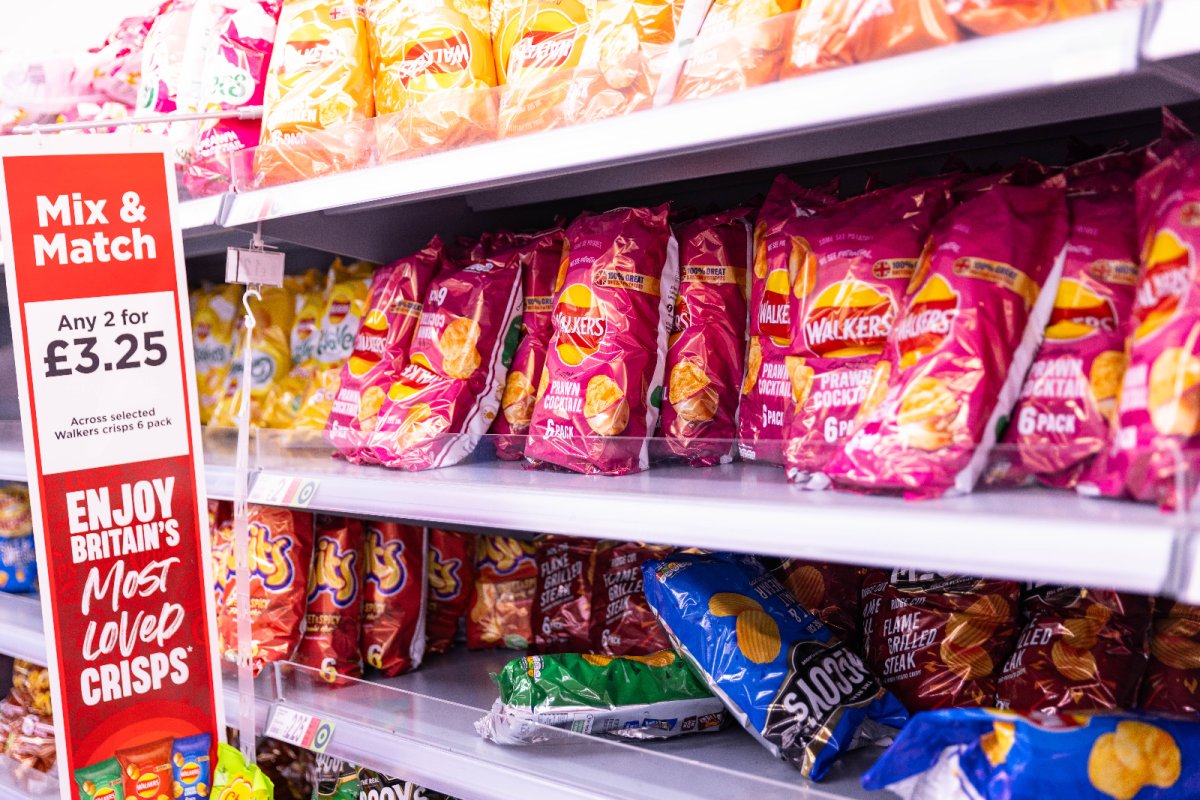
Ban on multibuy deals on less healthy food finally enters into force
New legislation restricting multi-buy price offers on less healthy food and drink high in fat, salt and/or sugar has finally come into force on 1 October, three years after originally scheduled, whilst other junk food marketing and advertising loopholes remain a concern for children's health. Read Sustain's response.
As of 1 October 2025, companies can no longer offer multi-buy deals on items including cakes, biscuits, crisps and savoury snacks, confectionery and soft drinks if they are assessed to be high in fat, salt and/or sugar (HFSS).
The Children's Food Campaign has been campaigning on junk food promotions and marketing for over 20 years. An original consultation took place during 2018 as part of the previous government's Child Obesity action, and legislation was finally passed in Parliament in December 2021. It was meant to come into force by 1 October 2023, but industry lobbying then pressurised the government into a series of further delays.
Children's Food Campaign Manager Barbara Crowther says:
"It's good news for children's health and for everyone who wants healthy food to be the affordable, available and appealing option.
"Whilst they are promoted as 'deals', multi-buy promotions are designed to get us to both buy more and spend more money, and encourage impulse purchasing. They are overwhelmingly focussed on unhealthy food and drink, but the public want special offers to focus on their core shopping basket and healthier food. These new rules will make companies reduce salt, sugar or fat in their products as well as put the promotional spotlight onto healthier options, which is good for our health and our household budgets!"
What does the new ban include?
The new rules will apply in England to all large supermarkets (over 50 employees) but not small businesses, and also to free refills of sugary drinks in cafes and restaurants. Wales and Scotland are expected to bring in similar regulations in 2026.
The regulations include categories of less healthy food and drink that have been assessed as contributing the highest levels of sugar and calories to children's diets. These include pre-packed confectionery, cakes, pastries, biscuits, crisps and savoury snacks, ice creams and lollies, breakfast cereal and soft drinks. Other food sold in cafes and restaurants as well as products sold loose (eg bakery goods) remain exempt. Products are restricted from multibuy price promotions only if they are assessed by the official Nutrient Profiling Model as being overall high in fat, salt and/or sugar (HFSS), and low in fibre, protein and other nutrients. Healthier versions of these products can still be promoted.
The rules apply specifically to price promotions focussed on purchasing multiple items. Typically dubbed buy-one-get-one-free (BOGOF), more common promotions in recent years have included 3 for the price of 2, X items for £Y, or added volumes (eg 50% extra), all encouraging customers to spend more money for added products. Independent studies have shown that these types of promotions are associated with higher consumption of calories, sugar and increased risk of diet related ill health. Deals and offers that reduce prices on single items are still permitted.
The restrictions are designed to complement regulations that were introduced in October 2023 (passed as part of the same original legislation as the multibuy regulations) focussed on restricting prominent displays of these items in store entrances, till areas and aisle ends. A recent study from the University of Leeds has estimated this has resulted in 2 million fewer sales per day of HFSS products, but also revealed weaknesses in the design and enforcement of the law that have undermined further positive impact.
Read more on the official regulations here
Less healthy food and drink advertising
The long delayed 9pm watershed and an online ban on advertising of less healthy food and drink were also meant to come into force on 1 October 2025, but these are not only further delayed to 5 January 2026, but new exemptions for brand advertising have caused major concern in relation to achieving the government's aim of protecting children from unhealthy food and drink advertising, and achieving the stated aims to reduce diet related ill health.
Sustain's commercial determinants co-ordinator Fran Bernhardt says:
"This Government pledged to raise the healthiest generation of children ever and yet they've ignored the evidence, instead pursuing a policy that essentially enables business as usual. They've not only scuppered the opportunity to set the stage for healthier food, they've written something so weak that it incentivises industry to develop more unhealthy products. Industry will be celebrating another ruined health policy, while the UK's children have been let down once again."
Read Sustain's full response on advertising here.
A group of trade bodies from the food industry and the advertising associations have pledged to start implementing the new advertising regulations from October 2025 on a voluntary basis, but compliance will not be officially monitored or enforced during this period. We and our partners at the Obesity Health Alliance will be keeping a sharp eye on advertising of less healthy food and drink during this period, to see how the rules are being implemented and interpreted. Meanwhile, the Committees of Advertising Practice are consulting on the final guidance for industry. The consultation is set to close on 9 October, ahead of the legal restrictions coming into force on 5 January 2026.
Together with our partners we continue to call on the government to:
- ensure proper monitoring and enforcement of all regulations on junk food advertising, marketing and promotions
- continue to review the scope of current regulations and address loopholes, including brand advertising, as well as outdoor, cinema and sports sponsorship, as well as reviewing whether other products, such as loose bakery goods or baby and toddler foods other than infant formula should be brought into scope
- explore further incentives for business to change the recipes of their products to make them healthier, including the use of fiscal levers or levies such as the successful Soft Drinks Industry Levy, alongside mandatory reporting and targets for healthier sales.
Children's Food Campaign: Campaigning for policy changes so that all children can easily eat sustainable and healthy food.
Sustain
The Green House
244-254 Cambridge Heath Road
London E2 9DA
020 3559 6777
sustain@sustainweb.org
Sustain advocates food and agriculture policies and practices that enhance the health and welfare of people and animals, improve the working and living environment, promote equity and enrich society and culture.
© Sustain 2026
Registered charity (no. 1018643)
Data privacy & cookies
Icons by Icons8
